[Bianculli here: Finding quality TV shows can be tough enough. Showing your support for them, even when they're on public television, can be even trickier, as contributing critic Tom Brinkmoeller reports today, using two current series to make his point...]
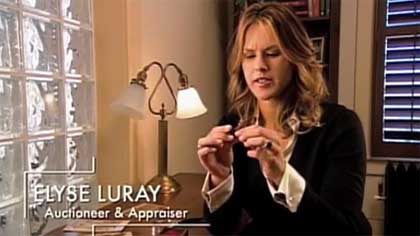
Two Exceptional PBS Series in Search of Viewer Momentum
Trail-blazing in Oregon isn't limited to the NBA. Two of public television's more innovative and consistently entertaining series, History Detectives and Time Team America, are products of OPB (Oregon Public Broadcasting). Each is built on an inventively new concept -- a rare event in America's follow-the-leader television business. In every episode of each series, producers manage to creatively and intelligently tell stories that entertain and educate. The two series are gems that are, as they say, well worth watching.
High quality aside, the life expectancy for each is a less-than-grand. This column is a shameless attempt to generate some of the enthusiasm that gave Friday Night Lights and Jericho leverage against cancellation. More on the jeopardy thing shortly. First, a brief sales pitch.
History Detectives, which presents a new episode tonight and its season finale next week (10 ET on PBS; check local listings), investigates, in several fascinating individual stories weekly, what, if any, historical significance can be tied to three or four objects that have been submitted to the show.
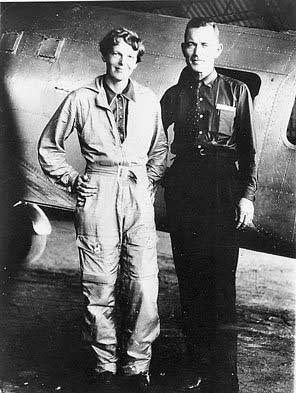
A piece of cloth may have been part of a World War II effort to use floating balloons to bomb America's western states. A piece of crumpled metal may have been part of Amelia Earhart's plane, and another may have been part of the Hindenburg. A machine may have been a Thomas Edison invention designed to communicate with the dead, but neither it nor he is talking.
They're just a few of the examples of stories that made it to the air from what executive producer David Davis says are about 5,000 viewer submissions each season. Once an idea comes in, it is scrutinized. If it's "a good story to tell," says Davis, and if the show's impressive group of researchers believe the history can be traced, an object is a bit closer to getting on the show.
The digging that has to happen next determines the segment's outcome. Contrary to the impression the series sometimes gives, a judgment is made on the object's history before any shooting begins. The segments compress the research, and one of the show's principals physically, and geographically, retraces the steps the researchers uncovered.
Davis semi-seriously describes the program as "Antiques Roadshow meets CSI." Up to 10 weeks can be spent putting together each segment, and the respect for detail shows up brightly. Aggressive fact-finding melds with good storytelling, and the results don't disappoint.
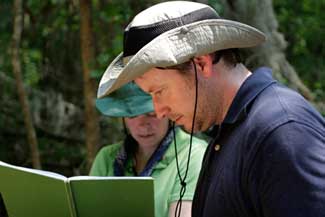
Time Team America, which recently wrapped its first season of five episodes, also does digging, this time literally. Each week its team of archeologists, each with a different speciality and all possessing a wealth of experience, visits a US dig and lends three days of collective expertise and a wealth of technological tools, to the team already working there.
Once again, professional production skills merge with science to produce a package that entertains, teaches and, endearingly, shows that people with impressive graduate degrees can love their work enough to dig and sift through tons of dirt, and deal with false leads, scorching sun, dig-filling rains, insects, snakes and other elements that don't plague university lecturers.
One last element of the pitch: If you haven't seen one or both but want to sample these series, full episodes can be watched at video.pbs.org, which you can reach by linking HERE.
Now the jeopardy part: The seventh season of History Detectives ends next week. It is the second most popular PBS summer series (after Antiques Roadshow), with a 1.5 rating (35 percent higher than the average PBS prime-time rating). Time Team America's first season is complete, and its .8 rating isn't bad for a freshman PBS summer series.
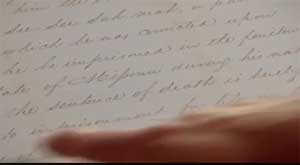
Especially in a recession, excellence doesn't necessarily pay the bills. Neither show, despite concentrated and prolonged efforts by OPB, has any underwriters. PBS has made up for what institutional and corporate contributors, to date, haven't done. It has fully funded History Detectives, and OPB recently learned that funding is promised for seasons eight and nine, even if no underwriting is found. A decision hasn't yet been made on Time Team America, which PBS funded this year.
Recent news of cutbacks due to revenue shortfalls (e.g., your clunker was worth $4500 last week; this week it's just a worthless heap again) demonstrates the fickleness of well-made promises. OPB would, no doubt, feel a lot better if funding were backed up by a contract. So would the shows' fans.
What can series supporters do?
Those involved in marketing who see the value of reaching a deliciously high-end audience at a great cost-per-thousand can stake out a prime image-making spot by putting some marketing money where it makes undeniable sense. If you're not in this unique position, and you think the series deserve more time: watch, to keep the ratings up; write/e-mail OPB and PBS to tell of your dedication to the shows; and, should you decide to make a donation to a PBS station, tell them in your letter or phone call you're giving them money to help your favorite shows stay on the air.
(Once, you could support those series by just calling in your pledge while they were on the air. That's not as easy, since Wayne Dyer, Suze Orman and other shills take over the air during pledge drives on almost all public stations.)
As long as The Biggest Loser, The Bachelor and Big Brother can tramp through prime time without a care in the world, we viewers can get a bit more aggressive about programs that are worth caring about.
--
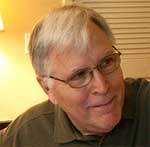
Tom Brinkmoeller insists he's not a big PBS fan just because it spares him encounters with car-insurance commercials and programs featuring Ryan Seacrest. Honest!